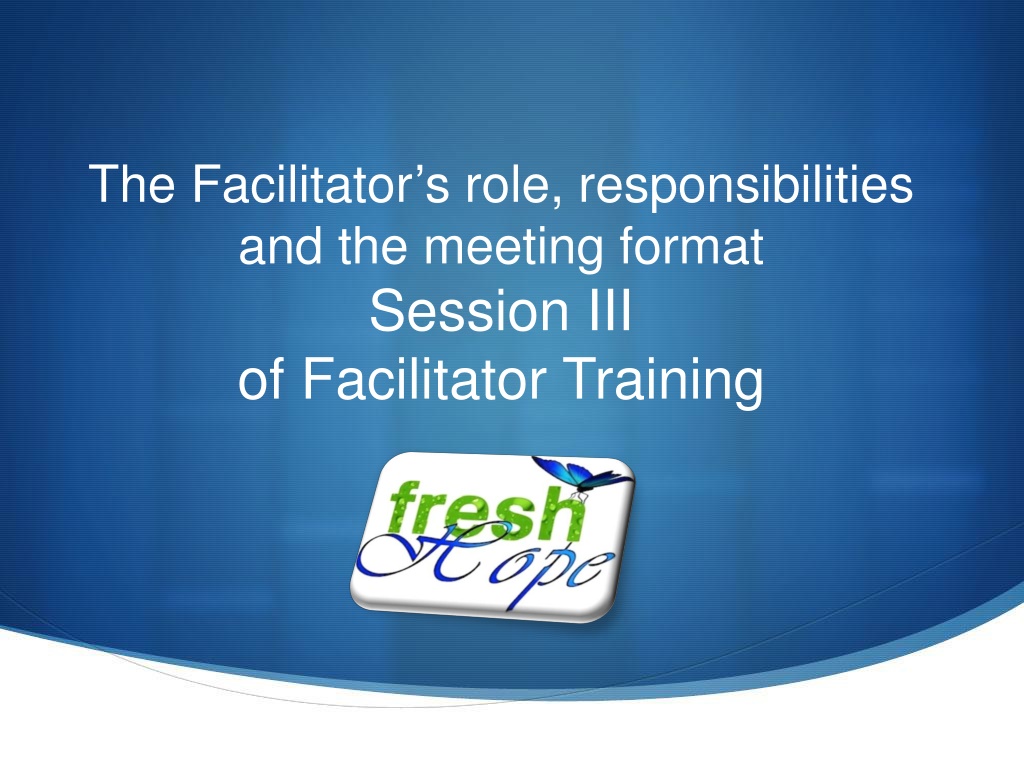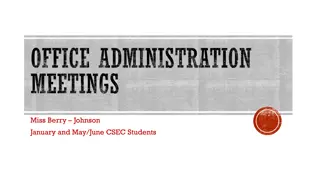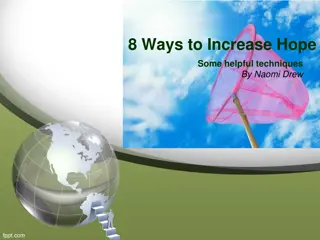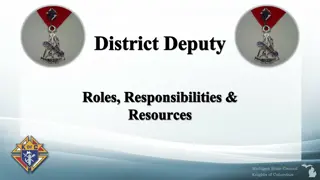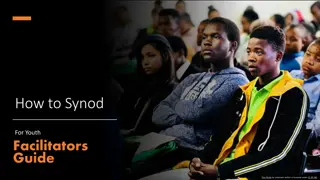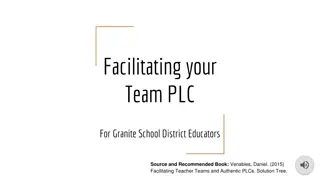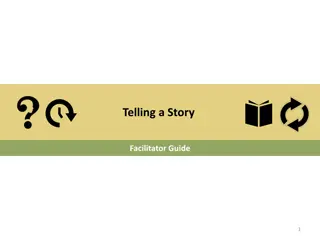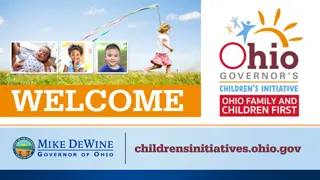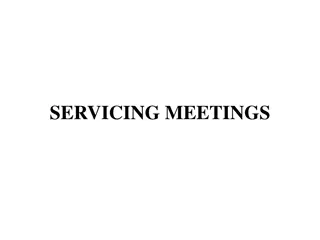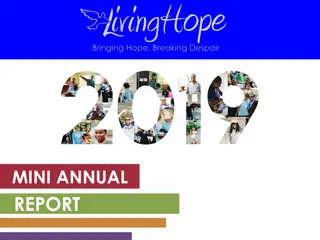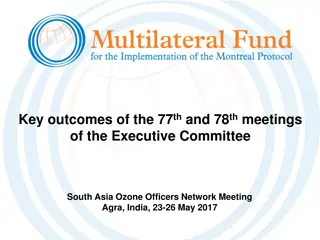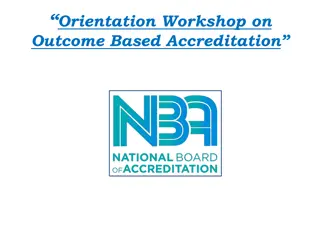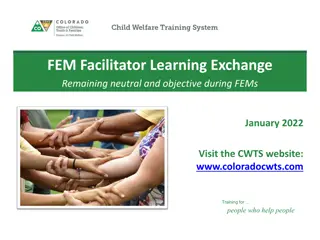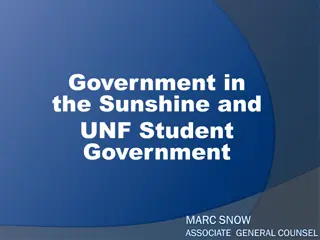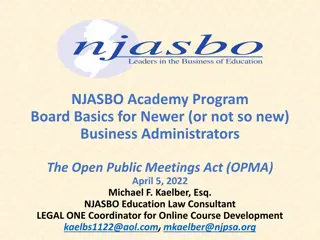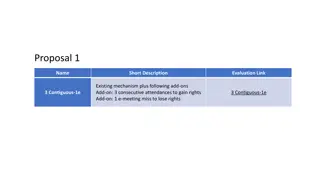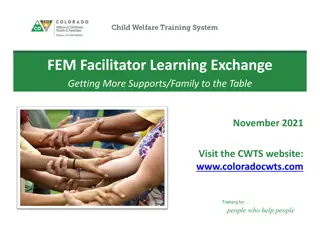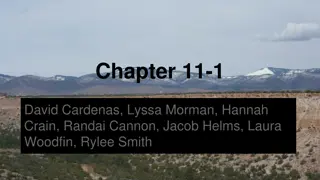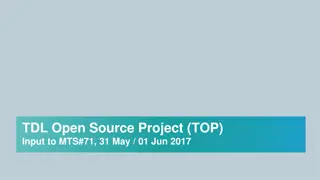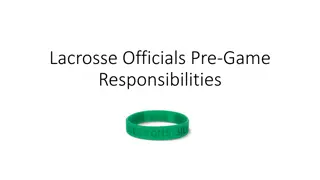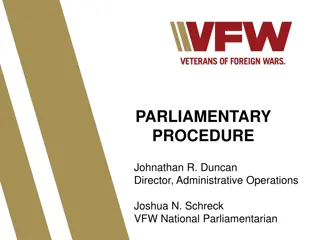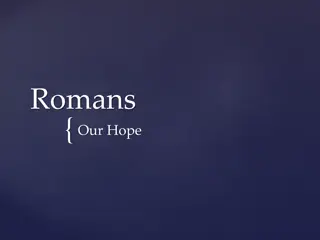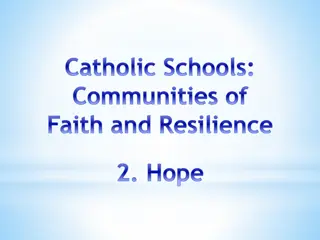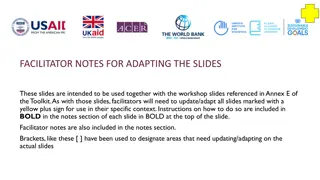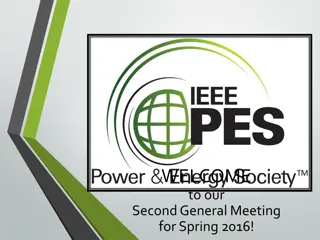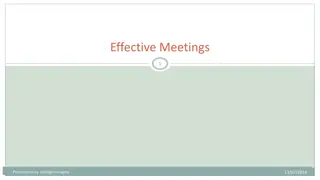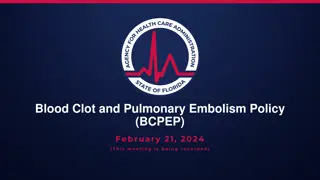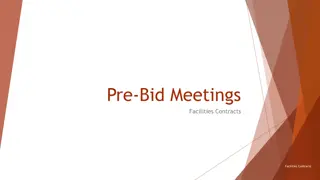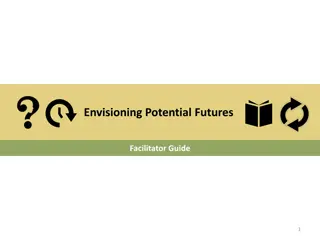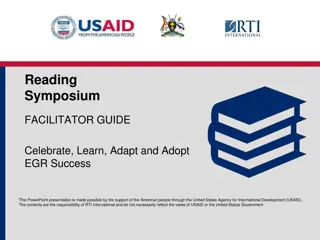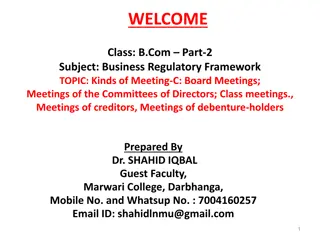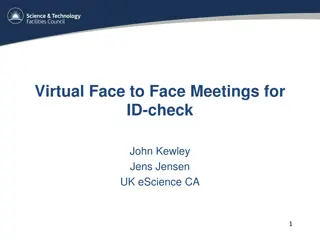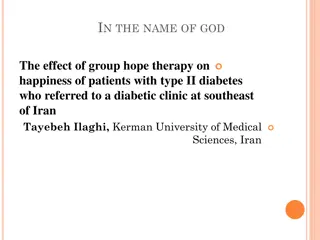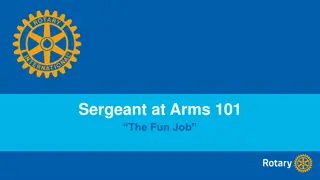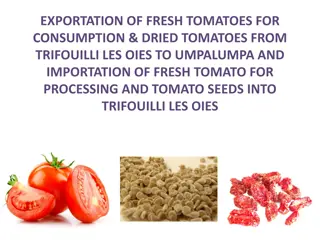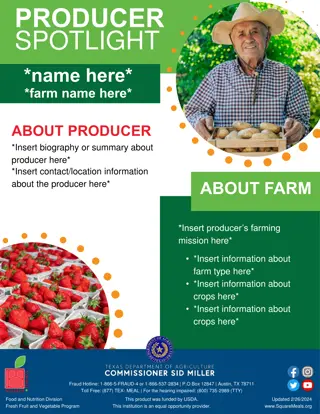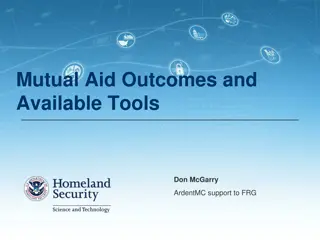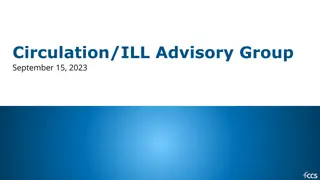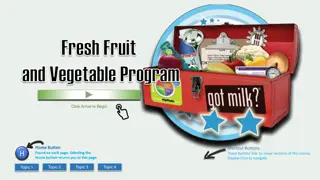Facilitator Role and Responsibilities in Fresh Hope Group Meetings
Fresh Hope group meetings are facilitated by trained individuals who lead discussions, ensure a safe environment, and guide the topics being discussed. Facilitators have specific qualifications that include personal maturity, group management skills, and a strong spiritual commitment. The role of a facilitator in Fresh Hope is to foster open discussions without engaging in theological debates, creating an inclusive and healing environment for all participants.
Download Presentation

Please find below an Image/Link to download the presentation.
The content on the website is provided AS IS for your information and personal use only. It may not be sold, licensed, or shared on other websites without obtaining consent from the author. Download presentation by click this link. If you encounter any issues during the download, it is possible that the publisher has removed the file from their server.
E N D
Presentation Transcript
The Facilitators role, responsibilities and the meeting format Session III of Facilitator Training
Facilitator Fresh Hope group meetings are facilitator-led, which is different than just everyone showing up and talking about whatever is on their mind. The facilitator oversees the group, helpers/small group leaders, either leads the topic of the meeting or lines up someone to do the topic, and over all makes sure that the meeting stays a safe environment
Facilitator Qualifications (pages 6a-7a) The preference is to have a minimum of two facilitators per Fresh Hope group -- with a maximum of four facilitators. A facilitator is first and foremost a peer; in other words, someone who has a mental health diagnosis who has been successful in their treatment/recovery program for an extended period of time. A facilitator must fill out a screening application. (page 18a-19a) A facilitator must receive a written endorsement from their doctor and/or their therapist. A facilitator must have a personal relationship with Christ and a recommendation by their pastor.
Facilitator Qualifications continued (pages 6a-7a) I. Character Have confidence in his/her identity. Have a high degree of personal maturity, including common sense, wisdom, and a tactful sense of humor. II. Skills Must have proven ability to successfully manage groups and facilitate discussions, making sure that the interactions of the group are appropriate, and that everyone has a chance to participate. The role of the facilitator is not one of being the expert , rather someone who can begin a discussion of a topic and allow the group to participate in an open flowing discussion. Please note: a facilitator is not a teaching role . A good facilitator will ask insightful questions that bring about group discussion.
Facilitator Qualifications continued (pages 6a-7a) III. Spiritual Commitment Remember that Fresh Hope is not a small group Bible study, prayer or church group; but rather is a group of people who are finding healing from the point of grace. Theological discussions and debates are not allowed. The facilitator must be able to create an environment where broader understandings of Christianity must be respected and not debated. The facilitator must also create an environment where even non-believers feel safe and comfortable. The facilitator will need to keep a careful eye out for those who might see their participation as one of evangelizing everyone. It is not helpful to a group if everything is so super spiritual that they don t feel safe being honest about where they are at that time.
Meeting Format We recommend meeting weekly, (with the exception of holidays) at the same time and place in the church or other public building, with chairs arranged in one big circle. Plan for a 1 - 2 hour time slot. The room should feel private. It s good to have a white board. Place several boxes of tissues in the middle of the circle.
Meeting Format Format (pages 10a-11a): Welcome everyone/housekeeping items; have an opening prayer. Read the tenets. Check-in time: Name Diagnosis/loved one Mood: 1-5 (1 is low to 5 is very high) Hope tank: Empty to full Topic: large group discussion time/see topic cards (may use Fresh Hope book, tenets, or appropriate blogs for topics). Prayer--in a circle--joining hands, Keep coming back, your God is able. Small groups
Practice the opening of the meeting in small groups
Opening the meeting Welcome everyone/housekeeping items; have an opening prayer Read the tenets Check-in time Name Diagnosis/loved one Mood: 1-5 (1 is low to 5 is very high) Hope tank: Empty to full
Clarification between a Facilitator and a Small Group Leader Page 13a
Group Discussion Guidelines Page 12a
Facilitator and Small Group Leader Helps Pages 14a-17a
Several things to watch for Dominators- - individuals who dominate the discussion. Trigger issues- certain topics are more likely to trigger people than others. See learned helplessness for what it is- address it. Using mental health diagnosis as the excuse for bad behavior, un-dealt-with emotional issues. Note: consider the differences between un-dealt -with emotional issues and issues caused by a chemical imbalance of the brain. Recognize wallowing- only focusing on mood or feelings. Feelings verses mood- and recognizing that mood does not have to be based upon circumstances. Understand and recognize shame and shame-based living. Understand and recognize toxic remorse. Understand and recognize trauma issues. Understand and recognize performance-driven living.
A key factor in recovery is trusting the doctor and telling the doctor or therapist everything.
A circle of accountability is a must , from my perspective.
Facilitator Weekly Duties (pages 10a-11a) Prior to meeting: Prepare your topic (see page 3a) After the meeting: Debrief with your small group leaders. Follow-up on anything necessary. Fax, email or snail mail the Facilitator Meeting Summary sheet to the National Fresh Hope office (see pages 4B-5B). Consider potential leaders. Secure the confidential information sheets of new members (2B)
Topics: Leading, Sources, Preparation, and Presentation Topic cards Going through each tenet as a topic Using the Fresh Hope Book within the group setting Preparing your own topics Guest speakers Group members leading a topic Online blogs
